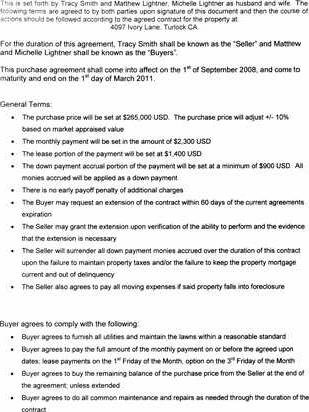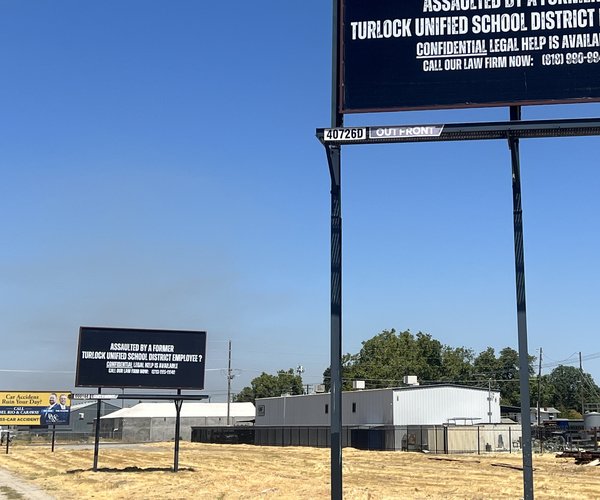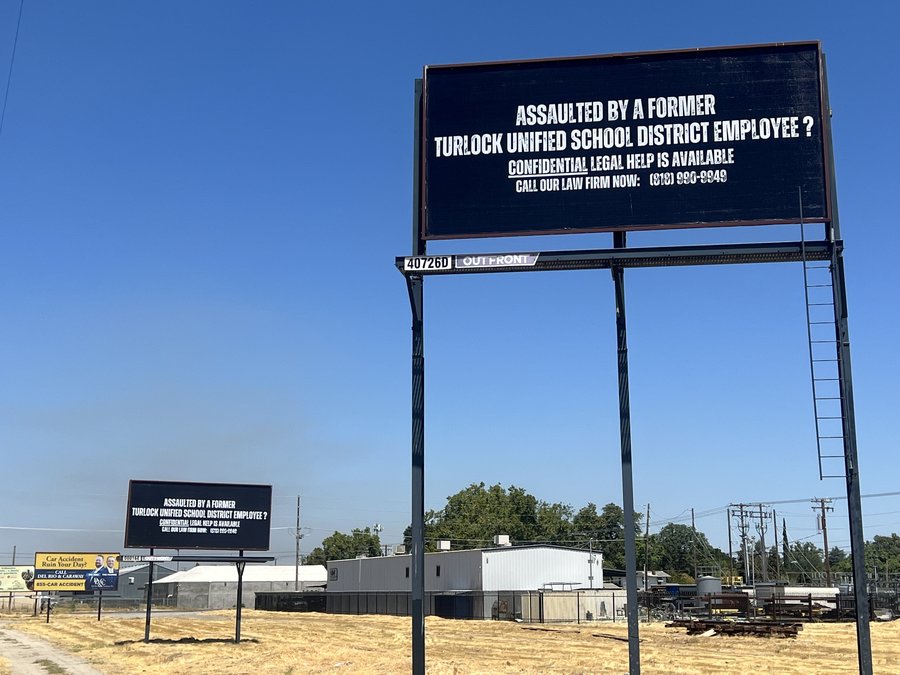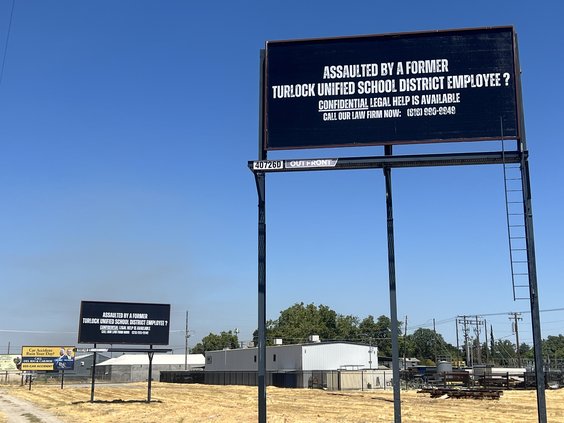The Lightners immediately knew the home on Turlock’s Ivory Lane was for them from the moment they walked through the front door.
“I thought the home was awesome,” Michelle Lightner said. “Anything that I could have picked out for my home, this house already had it. I loved the floorplan and it was in the neighborhood I wanted. Everyone felt close and comfy in that home. It was just perfect.”
They quickly signed the lease agreement and went about the business of making a house into a home. This was the home the couple planned to raise their four children in and stay for years to come, which is why it was so unsettling when, 10 months into their three-year lease agreement, the Lightners started receiving delinquency notices from the lender on the house.
“It felt like a punch to the stomach,” said Matthew Lightner. “It was such an awful feeling.”
One month later the family was packing up their belongings and searching for a new home.
The Lightners story is hardly uncommon in the Central Valley, or for that matter, across the country. They are part of a growing number of renters forced out of their homes because their landlords are being served with foreclosure and default notices.
According to research from the National Low-Income Housing Coalition in Washington D.C., 40 percent of the households that lose their homes to foreclosure are renters. In Stanislaus County, there were 10,953 homes in foreclosure for the month of August, according to the data from RealtyTrac.
The problem has become so widespread that Congress passed a new law to protect renters. Called the “Protecting Tenants at Foreclosure Act,” the law took effect immediately when it was passed in May and signed by the president.
The new law gives renters the right to stay in the home for 90 days after the foreclosure or through the term of their lease, unless the property is sold to someone who will occupy the home.
California law dictates tenants be given 60 days notice to move after a foreclosure and that leases are subordinate to a foreclosure. However, the new federal law preempts state law, unless the state law has greater renter level protections.
“This bill brings long overdue relief for the most blameless victims of the foreclosure crisis — the families who, after paying their rent each month, are suddenly told they must move out of their homes because their landlords have been foreclosed on,” said Shelia Crowley, president of the National Low-Income Housing Coalition.
The new law comes as little relief to the Lightner family, who had to quickly come up with the funds to move into another rental home. Under the federal law, the family could have stayed longer in the home, but Michelle Lightner said her family’s peace of mind was more important.
“My family is at least in a house that isn’t going to be taken away from us,” Michelle Lightner said.
Complicating matters, the Lightners aren’t even sure who actually owns the house. They signed a lease contract with Tracy Smith, but when the delinquency notices started coming in and Matthew Lightner did a search on the property taxes, he found Smith’s father-in-law, Scott Soiseth’s name on the tax document.
“I didn’t know what to think at that point,” Matthew Lightner said.
When contacted by the Journal, Soiseth declined comment. Smith’s attorney said she advised her client to decline making any comments because of pending litigation. Smith is currently awaiting trial on arson and check fraud charges. The arson charge stems from the fire earlier this year that forced the closure of the Red Steer restaurant in Turlock. The Red Steer in Modesto, which is also owned by Smith, just recently opened for business.
The contract that the Lightners signed with Smith stated they would pay him $2,300 a month, with $1,400 going towards the lease and $900 a month acting as an accrued down payment. The contract also states: “The seller will surrender all down payment monies accrued over the duration of this contract upon the failure to maintain property taxes and/or the failure to keep the property mortgage current and out of delinquency.”
Matthew Lightner said he has paid more than $23,000 towards the house. The delinquency notices claim more than $14,000 was owed on the property as of Aug. 5.
Often a tenant’s only recourse in foreclosure matters is to file a lawsuit against the former owner for failing to honor their leases. The Lightners said they have consulted an attorney but at present, cannot afford the $5,000 retainer.
“This whole experience has been really hard on the whole family,” Michelle Lightner said. “That home was where we wanted to be. It was our future. Now, we have to start all over again.”
To contact Sabra Stafford, e-mail sstafford@turlockjournal.com or call 634-9141 ext. 2002.
“I thought the home was awesome,” Michelle Lightner said. “Anything that I could have picked out for my home, this house already had it. I loved the floorplan and it was in the neighborhood I wanted. Everyone felt close and comfy in that home. It was just perfect.”
They quickly signed the lease agreement and went about the business of making a house into a home. This was the home the couple planned to raise their four children in and stay for years to come, which is why it was so unsettling when, 10 months into their three-year lease agreement, the Lightners started receiving delinquency notices from the lender on the house.
“It felt like a punch to the stomach,” said Matthew Lightner. “It was such an awful feeling.”
One month later the family was packing up their belongings and searching for a new home.
The Lightners story is hardly uncommon in the Central Valley, or for that matter, across the country. They are part of a growing number of renters forced out of their homes because their landlords are being served with foreclosure and default notices.
According to research from the National Low-Income Housing Coalition in Washington D.C., 40 percent of the households that lose their homes to foreclosure are renters. In Stanislaus County, there were 10,953 homes in foreclosure for the month of August, according to the data from RealtyTrac.
The problem has become so widespread that Congress passed a new law to protect renters. Called the “Protecting Tenants at Foreclosure Act,” the law took effect immediately when it was passed in May and signed by the president.
The new law gives renters the right to stay in the home for 90 days after the foreclosure or through the term of their lease, unless the property is sold to someone who will occupy the home.
California law dictates tenants be given 60 days notice to move after a foreclosure and that leases are subordinate to a foreclosure. However, the new federal law preempts state law, unless the state law has greater renter level protections.
“This bill brings long overdue relief for the most blameless victims of the foreclosure crisis — the families who, after paying their rent each month, are suddenly told they must move out of their homes because their landlords have been foreclosed on,” said Shelia Crowley, president of the National Low-Income Housing Coalition.
The new law comes as little relief to the Lightner family, who had to quickly come up with the funds to move into another rental home. Under the federal law, the family could have stayed longer in the home, but Michelle Lightner said her family’s peace of mind was more important.
“My family is at least in a house that isn’t going to be taken away from us,” Michelle Lightner said.
Complicating matters, the Lightners aren’t even sure who actually owns the house. They signed a lease contract with Tracy Smith, but when the delinquency notices started coming in and Matthew Lightner did a search on the property taxes, he found Smith’s father-in-law, Scott Soiseth’s name on the tax document.
“I didn’t know what to think at that point,” Matthew Lightner said.
When contacted by the Journal, Soiseth declined comment. Smith’s attorney said she advised her client to decline making any comments because of pending litigation. Smith is currently awaiting trial on arson and check fraud charges. The arson charge stems from the fire earlier this year that forced the closure of the Red Steer restaurant in Turlock. The Red Steer in Modesto, which is also owned by Smith, just recently opened for business.
The contract that the Lightners signed with Smith stated they would pay him $2,300 a month, with $1,400 going towards the lease and $900 a month acting as an accrued down payment. The contract also states: “The seller will surrender all down payment monies accrued over the duration of this contract upon the failure to maintain property taxes and/or the failure to keep the property mortgage current and out of delinquency.”
Matthew Lightner said he has paid more than $23,000 towards the house. The delinquency notices claim more than $14,000 was owed on the property as of Aug. 5.
Often a tenant’s only recourse in foreclosure matters is to file a lawsuit against the former owner for failing to honor their leases. The Lightners said they have consulted an attorney but at present, cannot afford the $5,000 retainer.
“This whole experience has been really hard on the whole family,” Michelle Lightner said. “That home was where we wanted to be. It was our future. Now, we have to start all over again.”
To contact Sabra Stafford, e-mail sstafford@turlockjournal.com or call 634-9141 ext. 2002.









